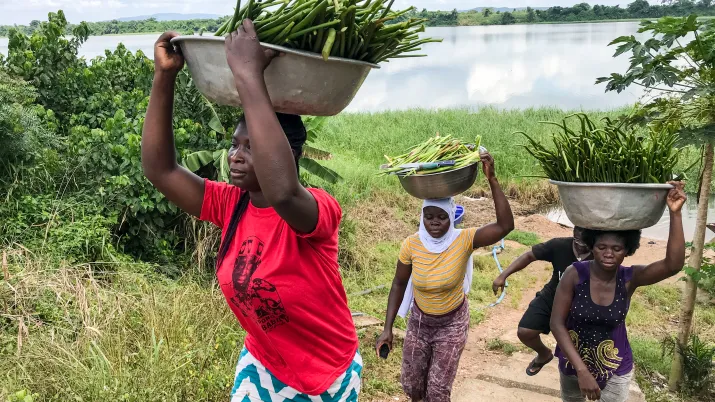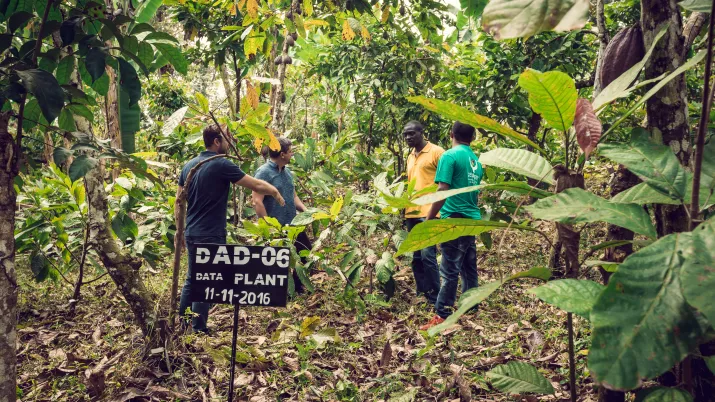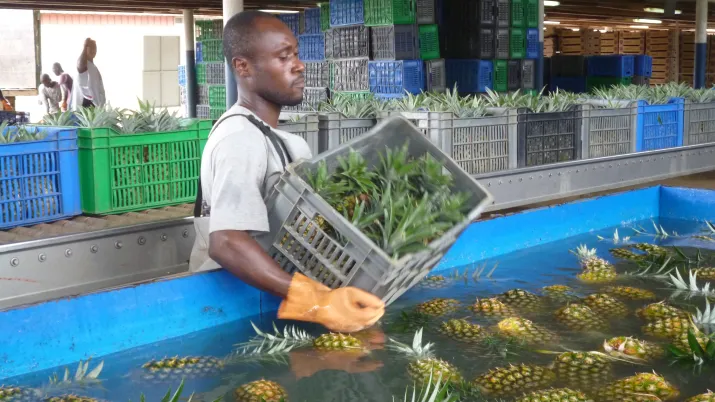Share the page
Towards a 100% traceable cocoa sector and zero deforestation in West Africa (Équité Cacao)
Project
Published on
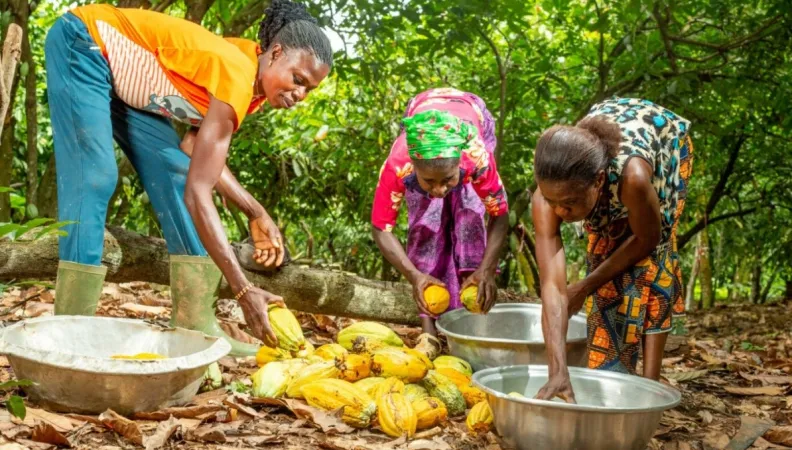

-
Project start date
-
Status
In progress
-
Estimated date of project termination
-
-
Project financing date
-
-
Financing duration
-
4 years
-
Type of program
-
FFEM
-
Global financing amount
-
6 000 000 €
-
FFEM financing amount
-
3 000 000 €
-
Project lead member institution(s)
-
AFD
-
Country and region
-
Ivory Coast, Togo
-
Type of financing
-
Partners
-
AFD
-
Beneficiaries
-
Commerce Equitable France
-
Type of beneficiary
-
NGO, Foundation

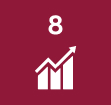

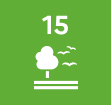
The project "Equité cacao Afrique de l'Ouest" aims to support the development of a cocoa sector "zero deforestation" in Côte d'Ivoire, Ghana and Togo, resilient to climate change and favorable to the improvement of living conditions for producers, by relying on fair trade channels and supporting the development of agroecological practices and compliance with new regulations in the fight against deforestation (RDUE and ARS 1000 standard).
Context
While Côte d'Ivoire and Ghana alone account for more than 60% of global production, the rise in cocoa has mainly taken place at the expense of forest cover, through monocultural production methods in "full sun", the intensive use of chemical inputs and the regular movement of production, once the forest rent is exploited, to new plots taking on the forest. The almost total disappearance of forests in Côte d'Ivoire and Ghana and the implementation of a new European regulation to combat "imported" deforestation (RDUE) will require from 2025 full traceability of cocoa placed on the market in Europe. These new standards imply profound changes in the West African cocoa sector in a "post-forestry" context where challenges are significant.
Description
The project revolves around 4 axes:
- Strengthen fair cocoa POs in their ability to ensure zero deforestation, agroforestry and organic production, which meets the challenges of transition and develops fairer trade relations
- Professionalize fair trade actors (OP, National Fair Trade Platforms, producer networks, labels, research) and strengthen their capacity for advocacy and to actively participate in the dissemination of innovations from the cocoa sector to identify the conditions for dissemination and swarming strategies.
- Increase the visibility of the EC among public authorities, economic actors and civil society as a tool for transforming trade relations and production methods for more profitable and sustainable sectors.
- Consolidate the EC as a relevant tool to reduce all forms of inequalities.
Outcomes
- Produce significant references on the sustainable production methods of cocoa in a post-forest context and analyze the socio-economic conditions of their swarming: bio-inputs, bio-manufactures, complex agroforestry systems, zero-deforestation traceability.
- Accompany and promote cocoa sectors that are 100% traced, non-contributing to deforestation and compliant with the RDUE.
- Consolidate the West African networks of fair trade producers and strengthen their institutional dialogue.
- Develop public policies to support sectors with high social and environmental performance.
Innovative and exemplary features
The project is fully in line with the 2023-2026 priorities of the sustainable management of agricultural and forest territories axis of the FFEM by specifically contributing to the following priorities: the production of information on the performance of agroecological systems, agroforests and forests; the implementation of land restoration models, agricultural soils and forests; the promotion of zero deforestation approaches at the scale of territories or sectors.
Sustainable Development Goals
ODD1 No poverty

ODD8 Decent work and economic growth

ODD12 Responsible consumption and production

ODD15 Life on land

Focus on the other projects
